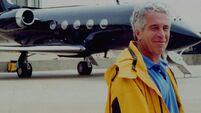Roadside bomb kills five in Iraq
A roadside bomb aimed at a US military convoy in Iraq’s Triangle of Death hit a minibus today, killing five Iraqis and wounding six, police said.
The US command announced that it is stepping up counter-insurgency training for newly arrived officers to give them the latest tactics about protecting patrols from such attacks.














